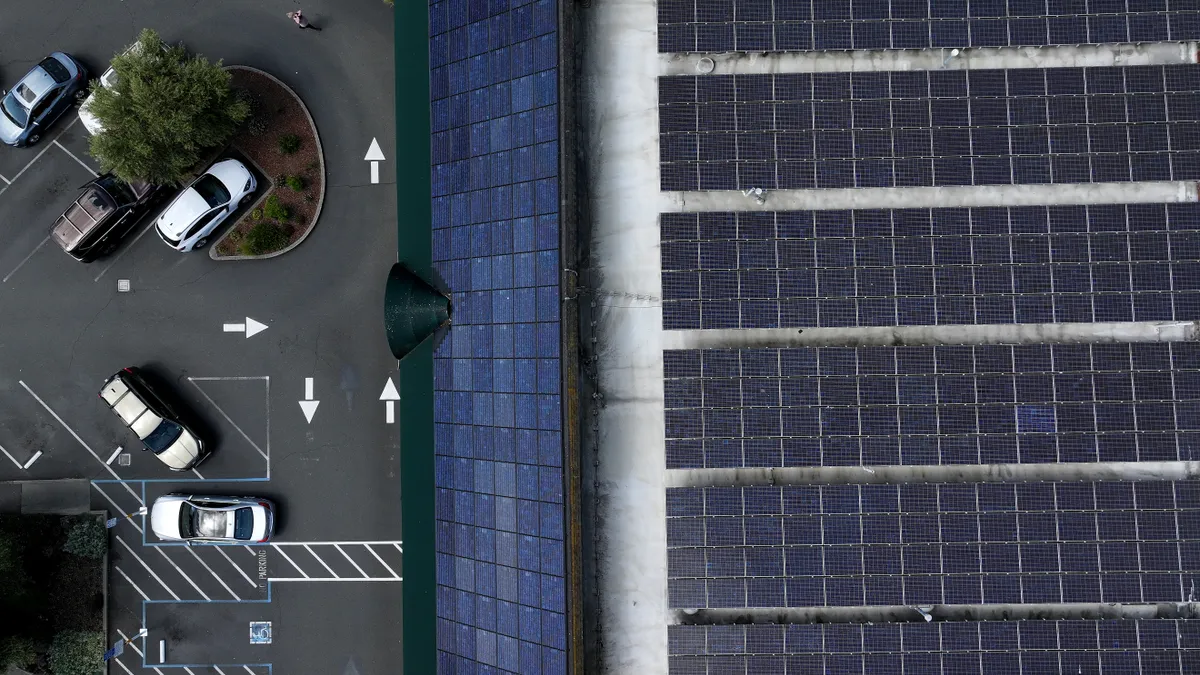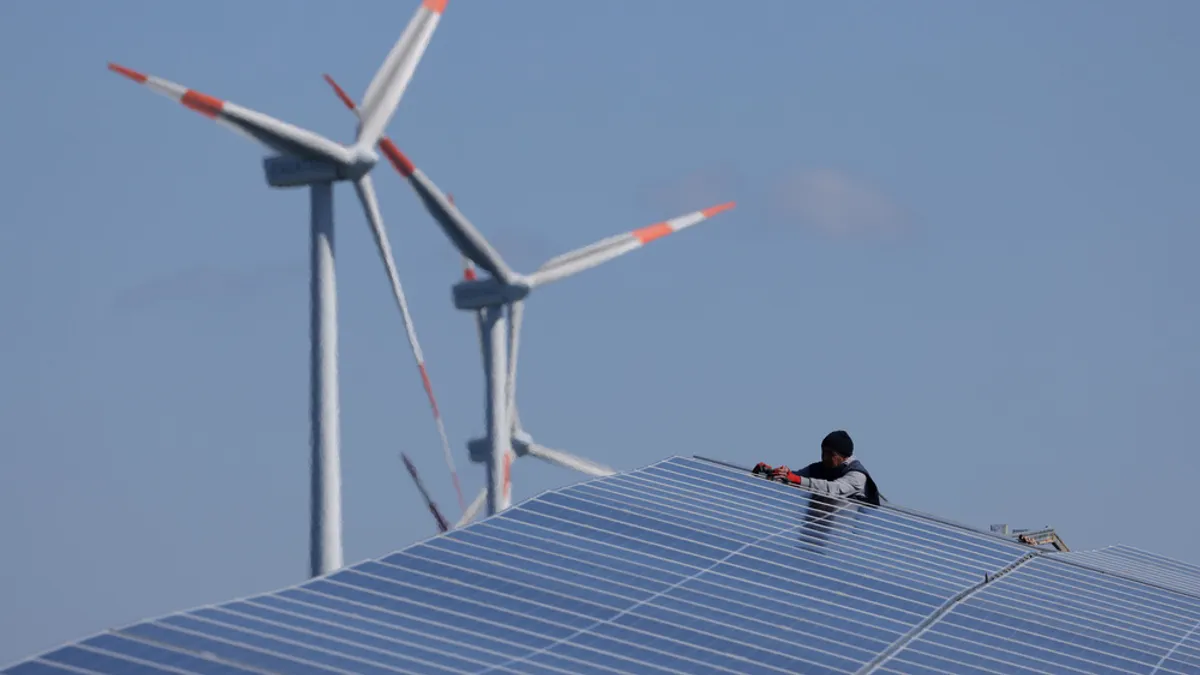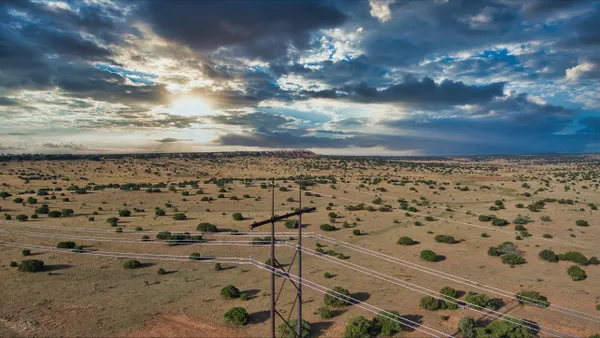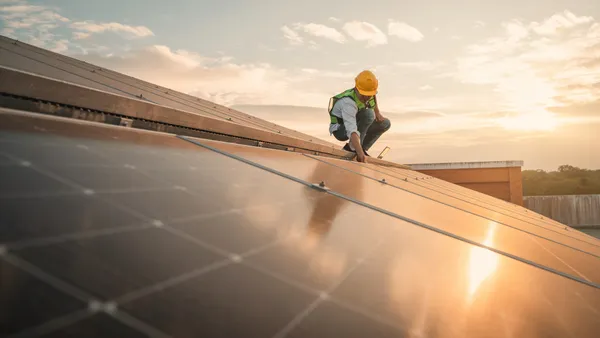Dive Brief:
- An administrative law judge for the Arizona Corporation Commission recommended regulators approve a settlement between solar companies and Arizona Public Service Co. in the utility's ongoing rate case. If approved, both sides pledged in a separate agreement not to undermine it through outside advocacy tactics.
- Under the agreement, new rooftop solar customers will be paid $0.129/kWh for exported energy, and the rate would decline no more than 10% annually. Customers would lock in their export rates for 10 years from the time they sign up.
- The agreement also includes a variety of rate design options for rooftop solar and default service customers, including time-of-use rates and residential demand charges. Both sides established a 20-year grandfathering period for customers who file an interconnection application before a decision is issued for the rate case.
Dive Insight:
Administrative Law Judge Teena Jibilian recommended the settlement between APS and solar interests be approved with few changes.
"The [Recommended Opinion and Order] finds that the balance the settling parties reached on these important issues is appropriate and will result in just and reasonable rates," Jibilian wrote.
The settlement represents a potential conclusion to five years of debate over solar compensation in APS' service territory. Both sides battled over compensation rates for rooftop solar — previously set at the retail rate — in often acrimonious proceedings until regulators resolved the issue in a decision last year.
Arizona's value of solar proceeding occupied much of 2016 as solar interests and utilities filed testimony to set the proper value for the resource. In a 4-1 vote in December, regulators decided to end the retail rate net metering program, leaving solar export rates for each utility service territory to be decided in their individual rate cases.
The decision upset solar interests, which feared rates would be set too low to make solar economic for homeowners. Their fears compounded when APS proposed demand charges for residential solar customers, which would charge a higher rate for their peak demand period in each month.
In March, national solar companies negotiated a settlement with APS that eliminated mandatory demand charges for solar customers and set the export rate for new customers at $0.129/kWh.
The export rate for rooftop solar would be higher than the offset rate — the rate credited to solar customers for the power they produce and consume onsite. Under the settlement, the offset rate is set to roughly $0.105/kWh, but will hinge on "individual usage patters and DG system size, orientation, and production."
For customers that choose the demand charge rates, solar energy consumed onsite will likely be valued between $0.096 and $0.078/kWh, according to APS.
At the time of the settlement, national solar installer Sunrun said the deal should not serve as a model for other states.
"It’s not ideal but workable," Vice President of Policy Alex McDonough said. "We’re able to stay in the market.”
Sunrun declined to comment on the recommended order.
The ruling from Judge Jibilian moves the settlement one step away from ultimate approval. APS supported the ruling, writing in a statement that 29 formal stakeholders, including solar interests, "reached a groundbreaking agreement on our rate review."
"If approved, it will bring about more solar, a smarter energy infrastructure, a cleaner energy mix and more options for customers," APS said in a statement. "The hearing officer’s recommended order continues to move Arizona in that direction.”
The settlement would also institute a self-build moratorium for APS, meaning the utility cannot build any new generation before 2022 unless explicitly approved by the ACC. The moratorium extends to the end of 2027 for combined-cycle gas generation units, but exempts microgrids, renewable energy, distributed generation, power purchases and upgrades to existing facilities.
Regulators could vote on the recommended order as soon as next month.













